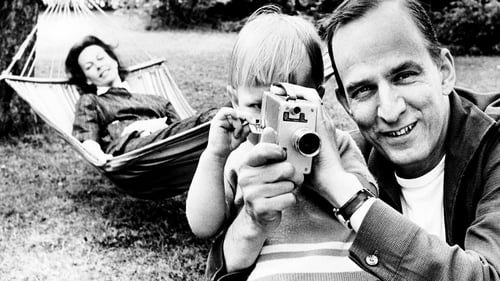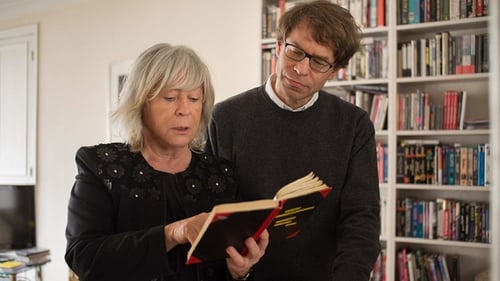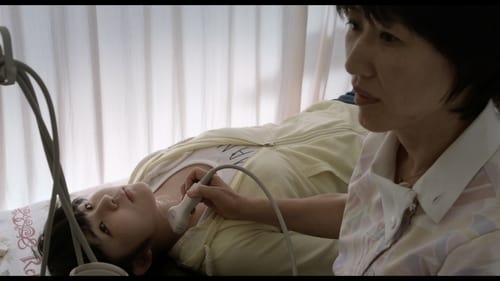Börres Weiffenbach
Nascimento : 1969-01-01, Berlin, Germany
História
Börres Weiffenbach, born in 1969, studied cinematography at the Konrad Wolf University of Film and Television in Potsdam. In 2002, while still a student, he won the Adolf Grimme Award for an outstanding debut for his cinematography in OTZENRATHER SPRUNG (dir. Jens Schanze). Further successes include, for example, CHILDREN. AS TIME FLIES (dir. Thomas Heise), which won the Silver Dove at DOK Leipzig, and MASTER OF THE UNIVERSE (dir. Marc Bauder), which won the Jury Prize at Locarno International Film Festival and the European Film Award.

Director of Photography
Two years after the Panama Papers scandal, two investigative journalists at Germany’s largest newspaper, Süddeutsche Zeitung, are ready with a series of new revelations while researchin the assassination of Maltese journalist Daphne Caruana Galicia and a mysterious arms dealer linked to the Iranian nuclear missile programme. When a secret video gets leaked to them in 2019, the journalists have the opportunity to uncover a new scandal, today known as ‘Ibiza-Gate’, involving the Austrian Vice-Chancellor Heinz-Christian Strache.

Director of Photography
A look at the current state of the world, from the hand of six intellectuals and scientists who reflect on the present and postulate about the future.

Director of Photography
Four female artists have been politicized by experiences with war, violence and suppression and integrated them into their work, using their most personal tool: their own bodies.

Cinematography
A city, a cinema, and a reluctant farewell. In 2017, in the city of Constance on Lake Constance, Europe’s largest chain of drugstores opened the city’s fifth branch store: more diapers, more toothpaste and more toiletries for the local residents and the consumer tourists from Switzerland. Until the year 2016, the premises were reserved for film culture, this was the location of the former “Scala Film Palace”. When Douglas Wolfsperger returns to the magical site of his cinematic socialization, the public opposition to this pending closure is in full swing. The filmmaker becomes witness to the final rebellion of a dying art house cinema, speaks to passionate film enthusiasts and matter-of-fact city administrators about loss and expansion, the increase in pleasure and trade, intransparent vested interests and advantageous business situations. Inner cities and cultural concepts change – in Constance and everywhere else. But who decides how and for whom?

Director of Photography
Ele é considerado o cineasta mais importante de todos os tempos. Em 2018, Ingmar Bergman teria completado 100 anos de idade. Nesta ocasião, a diretora alemã internacionalmente conhecida e respeitada Margarethe von Trotta aborda o trabalho e a pessoa de Ingmar Bergman, sob cuja herança cinematográfica se fala de uma nova geração de cineastas.

Cinematography
West Germany in the 1970s. Many artists, journalists and intellectuals were branded as sympathizers of Baader-Meinhof's left-wing terrorism. The parents of the director, too: Margarethe von Trotta and his stepfather, Volker Schlöndorff. With extensive archive materials and film clips as well as Margarethe von Trotta's private diaries the film portrays one German family and the society of the time.

Cinematography
A OMS está doente? A cineasta e mãe Lilian Franck revela influências clandestinas das indústrias do tabaco, farmacêutica e nuclear na organização. Ela mostra um retrato assustador da nossa sociedade atual, na qual a política governamental está a tornar-se obsoleta.
"De todas as formas de desigualdade, a injustiça na área da saúde é a mais chocante e desumana." Martin Luther King

Director of Photography
The senior investment banker Jochen Walther is at the peak of his career at the Deutche Bank. He just finished the deal of his life along with his personal assistant Tom Slezak, when during the celebrations he suddendly jumps from the roof of the bank's headquarters in Frankfurt. Was it suicide or even a murder?

Cinematography
Documentary about the audition process at an acting school in Hannover, Germany.

Director of Photography
The village of Tamaquito lies deep in the forests of Colombia. Here, nature provides the people with everything they need. But the Wayúu community's way of life is being destroyed by the vast and rapidly growing El Cerrejón coal mine. Determined to save his community from forced resettlement, the leader Jairo Fuentes negotiates with the mine's operators, which soon becomes a fight to survive.

Cinematography
A small one-street village in the open landscape of East Germany, marked by the political changes of the past decade and long forgotten by the rest of society. FAR END OF THE MILKY WAY is a trip to the periphery of society. Wealth and jobs are scarce around here, but people want to stay regardless. With stubbornness and a sense of humor, they make the best of their situation. FAR END OF THE MILKY WAY is a film about work and love, your garden as your pub, ashes in the snow and slaughtering pigs

Director of Photography

Director of Photography

Cinematography
"Pictures from the late eighties in the GDR on up to the immediate present in the year 2008 in Germany. What has been left over besieges my mind. All these pictures keep reassembling themselves to make up something which they were originally not made for. They are still in motion. They are becoming history." (Thomas Heise)

Cinematography

Director of Photography

Director of Photography

Director of Photography
In the documentary Last To Know political prisoners, sent to jail for openly opposing the East German regime that existed until the German reunification in 1990, talk about their times of trial and their lives today. Neither they, nor their families have come to terms with what happened.

Director of Photography
By 2045, twenty localities in Germany will be resettled because of brown coal open pit mining. The film Waste Land follows the inhabitants of three villages in the Rhenish coal-mining district during their last years in their old home and documents how an entire region prepares for its collective relocation.








